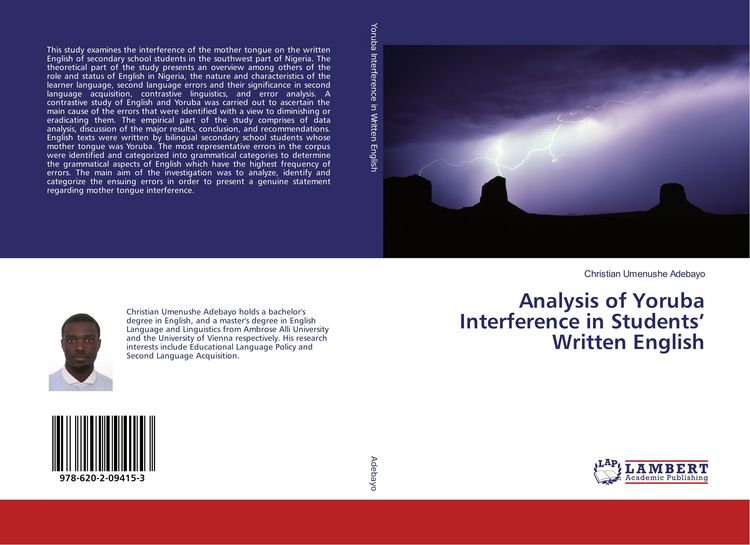
Analysis of Yoruba Interference in Students' Written English
-
- Englisch ausgewählt
42,99 €
UVP
49,90 €
inkl. MwSt,
Lieferung nach Hause
Beschreibung
Details
Einband
Taschenbuch
Erscheinungsdatum
05.12.2017
Verlag
LAP LAMBERT Academic PublishingSeitenzahl
112
Maße (L/B/H)
22/15/0,7 cm
Gewicht
185 g
Auflage
1. Auflage
Sprache
Englisch
ISBN
978-620-2-09415-3
Unsere Kundinnen und Kunden meinen
Verfassen Sie die erste Bewertung zu diesem Artikel
Helfen Sie anderen Kund*innen durch Ihre Meinung
Kurze Frage zu unserer Seite
Vielen Dank für dein Feedback
Wir nutzen dein Feedback, um unsere Produktseiten zu verbessern. Bitte habe Verständnis, dass wir dir keine Rückmeldung geben können. Falls du Kontakt mit uns aufnehmen möchtest, kannst du dich aber gerne an unseren Kund*innenservice wenden.
zum Kundenservice